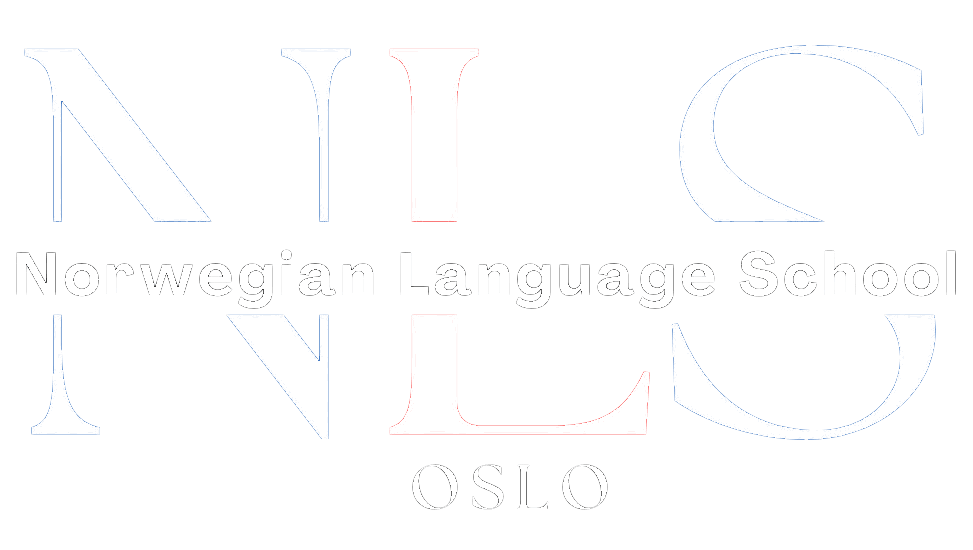

Transform Your Summer with Advanced English Learning at NLS in Oslo
Oslo in the summer is a city of boundless energy, where cultural festivals meet peaceful fjord views, and long days are filled with opportunities to learn, explore, and connect. This setting becomes even more alluring when paired with an English Summer Course offered by the NLS Norwegian Language School. While the school has established a strong reputation in Norwegian language instruction, it also excels in teaching English with the same high standards, student-focused methods, and communicative approach.
In this second article, we delve deeper into how you can make the most of the NLS English Summer Courses—from understanding the course levels and daily speaking classes to balancing studies with cultural explorations. We’ll also detail how the school assists students in finding suitable accommodation, emphasizing that direct housing is not provided, but robust guidance is available. Whether you’re aiming to begin your English journey from scratch or refine advanced skills for professional growth, this comprehensive guide will help you craft a fulfilling and educational summer in Norway’s capital.
Table of Contents
Toggle1. The Vision Behind NLS English Programs
1.1 Student-Centered Pedagogy
The teaching philosophy at NLS Norwegian Language School revolves around active participation. Instructors view themselves as facilitators, guiding you through tasks and conversations rather than simply lecturing about grammar rules. This approach fosters confidence and encourages students to learn by doing—whether that involves group discussions, brainstorming sessions, or problem-solving exercises in English.
1.2 Meeting Global Demands
English has established itself as the lingua franca in business, academia, and international relations. Realizing that students from diverse backgrounds require strong English skills to excel globally, NLS structured its summer courses to address specific student objectives—from casual everyday communication to advanced professional or academic competency.
1.3 Integration of Cultural Competence
Language learning isn’t just about words and grammar; it’s about understanding cultural nuances. While the school focuses on English, it also weaves in lessons about cross-cultural communication. This equips you not only to speak English but also to communicate effectively in a multicultural environment—a skill of increasing importance in today’s interconnected world.
2. Course Framework: A0-A1, A2-B1, B2-C1
NLS organizes its English Summer Courses into three primary proficiency levels, each catered to different skill sets. Before you begin, you’ll likely complete a short diagnostic test or engage in a consultation to determine the most suitable starting point.
2.1 A0-A1: Laying the Foundations
- Focus: Basic grammar, essential vocabulary, and initial conversation skills.
- Delivery: Interactive dialogues, simple reading passages, and ample listening exercises.
- Outcome: Comfortably handle daily interactions like shopping, greeting friends, or asking for directions in English.
2.2 A2-B1: Strengthening Intermediate Skills
- Focus: Expanding vocabulary, mastering more complex tenses, and practicing moderate fluency.
- Delivery: Group discussions, intermediate reading materials, and structured writing assignments.
- Outcome: Effectively communicate in day-to-day scenarios and partake in discussions on personal interests or current affairs.
2.3 B2-C1: Achieving Advanced Fluency
- Focus: Nuanced grammar, specialized vocabulary, refined writing, and advanced conversational dynamics.
- Delivery: Debates, critical analysis of texts, presentation skills, and occasionally academic-style essays.
- Outcome: Able to engage confidently in professional settings, produce coherent and persuasive texts, and conduct extended conversations on complex topics.
3. Choosing Your Study Duration: 1 to 8 Weeks
3.1 Short Spans for Quick Insights
Even if you only have a single week or two available this summer, you can still benefit from a concentrated course. These shorter sessions often serve as crash courses or refreshers, allowing you to focus on particular weaknesses—like speaking fluency or grammar gaps—without making a long-term commitment.
3.2 Mid-Length Sessions for Steady Progress
Three to five weeks of study provide a balance between depth and flexibility. This option is popular for those who wish to see meaningful improvements without giving up their entire summer. For instance, a college student on break might find this the perfect window to reinforce language skills before the next academic term.
3.3 Full Immersion for Transformative Growth
Opting for the six- to eight-week range sets the stage for a profound leap in fluency. Spending nearly two months in Oslo immerses you not only in classroom learning but also in everyday Norwegian life—where English is commonly used. This prolonged immersion can result in noticeable growth across all language competencies.
4. The Power of Daily Speaking Classes
4.1 Targeted Conversation Practice
Effective communication in English involves thinking on your feet, picking the right expressions, and having the confidence to make mistakes and learn from them. Daily speaking classes are specifically designed to accelerate this process. Participating in regular, structured conversation sessions ensures you get direct, consistent practice in speaking and listening.
4.2 Diverse Topics and Scenarios
From debating the merits of remote work to simulating job interviews or discussing environmental issues, daily speaking classes span diverse topics. This variety keeps lessons engaging and mirrors the unpredictability of real-life situations, preparing you to adapt swiftly to new contexts. Instructors might assign roles, facilitate mock negotiations, or guide you through interactive games that require spontaneous dialogue.
4.3 Building Long-Lasting Confidence
Frequent speaking opportunities reduce the performance anxiety that often accompanies language learning. As you grow more comfortable contributing in class discussions, you’ll likely notice your willingness to speak up in other settings—like social gatherings or public spaces—also increases. This increased comfort can have a profound influence on your long-term language journey, turning English from an academic subject into a seamless part of your everyday communication.
5. Life in Oslo: A Perfect Backdrop for English Immersion
5.1 A Multifaceted International Scene
Oslo has rapidly emerged as a cosmopolitan hub, boasting a growing international community. While Norwegian is the city’s main language, the prevalence of English is apparent in corporate offices, universities, and popular tourist spots. For English learners, this makes everyday life an extension of the classroom, filled with unexpected moments to practice speaking and listening.
5.2 Leisure Activities for Every Taste
Whether you’re a nature enthusiast who wants to explore nearby hiking trails, a foodie keen on sampling local seafood, or an art lover planning to visit world-class museums, Oslo accommodates a range of interests. Engaging in these leisure activities in English—be it by reading English-language guides, conversing with fellow travelers, or participating in local events—ensures you’re continually flexing your linguistic muscles.
5.3 Navigating the City
Oslo’s public transportation network is efficient and user-friendly. Buses, trams, ferries, and trains link various parts of the city, making it simple to explore cultural hotspots and natural sites without missing your classes. The official websites for these services are often available in English, further helping you become comfortable reading and interpreting essential information in your target language.
6. Classroom Dynamics: Engaging, Interactive, and Supportive
6.1 Small Class Sizes
One distinguishing feature of NLS Norwegian Language School is its commitment to small class sizes. Fewer students per class promote active participation, foster close-knit learning communities, and enable teachers to monitor each individual’s progress. This personalized attention can speed up your learning curve and ensure that you never feel lost in a sea of classmates.
6.2 Project-Based Learning
While textbooks and worksheets remain staple resources, NLS also incorporates projects that encourage creative thinking. For instance, a B2-C1 class might work on a group presentation analyzing recent global news stories, requiring advanced reading comprehension and public speaking. This variety ensures that learning remains vibrant, dynamic, and always connected to real-world communication.
6.3 Constructive Peer Feedback
Your classmates become allies in your language journey. Pair or group work sessions allow you to exchange feedback, learn from your peers’ mistakes, and celebrate collective achievements. This collaborative environment cultivates a spirit of mutual support, where each member of the class feels motivated to help others improve.
7. Cultural Immersion and Extracurricular Activities
7.1 Integrating Language with Sightseeing
For many, Oslo’s cultural and historical treasures become an essential part of the learning experience. From the National Museum (showcasing iconic works, including those by Edvard Munch) to the bustling Karl Johans gate (a pedestrian street filled with shops and cafés), you can turn any excursion into a language lesson by reading English signage, chatting with fellow tourists, or reflecting on your experiences in a study journal.
7.2 The Thrill of Summer Festivals
Oslo’s summer months are alive with festivals celebrating music, film, food, and more. Engaging in these events can greatly enhance your conversational skills as you interact with a diverse crowd. Whether you’re discussing local delicacies at a food festival or enjoying international music acts at a cultural celebration, these moments serve as practical tests of your English fluency in fun, relaxed settings.
7.3 Voluntary Group Outings
NLS occasionally proposes optional group outings that serve as cultural and social gatherings. These might involve picnics in the park, visits to historical sites, or boat trips on the Oslofjord. While Norwegian might be the default language among local participants, English often becomes the common tongue in international groups, ensuring that you consistently sharpen your language abilities.
8. Accommodation: Guidance Over Provision
One question that often arises is where to stay during your time in Oslo. While NLS Norwegian Language School does not provide housing, they do offer valuable advice and resources to help you locate suitable accommodations. Here’s how they can assist:
- Housing Checklists and Budgeting Tips: Basic guidelines to ensure you’re prepared to navigate Oslo’s housing market, including realistic price ranges and common amenities.
- Neighborhood Insights: Suggestions on which parts of the city are most convenient for commuting to NLS or offer a particular cultural vibe. Some neighborhoods are known for vibrant nightlife, while others boast quiet, family-friendly streets.
- Connecting with Other Students: Often, classmates might be seeking roommates or sublets. The school can help connect you with fellow learners, creating a potential network for shared housing solutions.
Keep in mind that Oslo can be relatively expensive compared to many other European cities. Start your search early, consider exploring shared apartments, and keep an open mind regarding the distance from the city center. An apartment located slightly farther might be more affordable while still offering easy access to public transport.
9. Pre-Arrival Preparations and Practical Considerations
9.1 Visa Requirements
Depending on your country of origin, you may need a visa or special permit to stay in Norway for an extended period. Check with the relevant Norwegian consulate or embassy to determine the paperwork required. NLS’s administrative staff can offer general guidance, but the responsibility ultimately falls on you to secure the necessary travel documents.
9.2 Cost of Living
As previously noted, Oslo’s cost of living is higher than some other European capitals. Budget carefully for food, transportation, leisure activities, and accommodation. Many students opt to cook at home frequently and use public transport passes to keep expenses in check.
9.3 Language Materials and Tech Tools
While textbooks or learning materials may be provided or recommended by NLS, it’s wise to bring a laptop or tablet for completing assignments and utilizing language-learning apps. Establishing a dedicated email folder for English content—such as articles, newsletters, and e-books—helps you maintain a steady exposure to the language.
10. Setting Your Goals and Tracking Progress
10.1 Defining Clear Objectives
Before diving into your English Summer Course, ask yourself: Are you aiming to improve speaking for professional reasons? Are you hoping to read academic texts with ease? Clarity on these objectives allows both you and your instructors to customize your learning trajectory.
10.2 Monitoring Improvement
Keep a personal journal or language portfolio. Document new words or phrases you encounter daily, reflect on areas that challenge you, and note any “aha!” moments in class. Such self-assessment can be incredibly motivating and help you gauge how far you’ve come.
10.3 Seeking Feedback
Don’t hesitate to ask teachers for extra help or practice tasks if you feel uncertain about particular topics. NLS instructors are there to support you and can often recommend additional exercises or resources to strengthen your weaker areas.
11. How to Enroll
If the idea of spending your summer in Oslo perfecting your English appeals to you, the enrollment process is straightforward:
- Contact the School: Send an email to info@nlsnorwegian.no or call +47 90814756 to express your interest and inquire about specific course dates and prices.
- Level Assessment: Determine your current proficiency. You might take a short placement test or discuss your background in English to ensure you’re matched with the correct class level.
- Choose a Duration: Decide how many weeks you can dedicate to the course. Remember, you can also opt to include daily speaking classes for an intensified learning experience.
- Receive Guidance on Accommodation: While NLS does not directly provide housing, they can point you toward reliable platforms and share insights on various neighborhoods in Oslo.
- Finalize Details: Complete the necessary paperwork, settle any tuition fees, and begin preparing for your journey—whether that involves securing a visa, reading up on Norwegian culture, or brushing up on English basics.
12. Crafting a Memorable Summer Experience
A summer abroad is about more than just language courses; it’s a window into a new way of life. Whether you’re strolling around the scenic Oslo Fjord, exploring local eateries with classmates, or simply enjoying the extended daylight, every moment offers a chance to immerse yourself in English. As you balance structured learning with personal discovery, you’ll find yourself making rapid progress in areas like listening comprehension, vocabulary recall, and most importantly—confidence.
12.1 Embrace Cultural Diversity
Your classmates may come from various countries and cultural backgrounds. Use this chance to forge friendships that extend beyond the classroom. Sharing perspectives, celebrations, and even home-cooked meals can broaden your worldview while reinforcing your language skills.
12.2 Use English as a Bridge
Though you are in Norway, English often serves as the lingua franca among international students and locals adept at switching languages. Take advantage of these opportunities by initiating conversations, asking questions, and practicing newly learned expressions whenever the moment arises.
12.3 Reflect on Personal Growth
Living abroad—however briefly—can be transformative. You might develop new habits, adjust to different social norms, or discover hidden strengths in your ability to adapt. Keeping a reflective journal or even a short video diary can help you track these changes, providing a tangible record of a summer well-spent.
Conclusion
The English Summer Courses at NLS Norwegian Language School offer a holistic approach to language acquisition set against the backdrop of one of Europe’s most enchanting capitals. From the fundamentals of A0-A1 to the advanced challenges of B2-C1, the carefully structured curriculum, daily speaking sessions, and vibrant learning environment ensure that every student can make meaningful strides in proficiency. Beyond the classroom, Oslo’s cultural tapestry—from its festivals to its scenic vistas—acts as a dynamic extension of your learning space, encouraging real-world use of English in diverse contexts.
While NLS does not directly arrange your accommodation, the school is committed to offering comprehensive guidance and practical tips for navigating the city’s housing options. This supportive framework helps you settle into daily life in Oslo quickly, minimizing stress so you can concentrate on what truly matters: improving your English and soaking in the best the city has to offer.
If you’re ready to step into a summer of growth, challenge, and unforgettable experiences, contact NLS at info@nlsnorwegian.no or call +47 90814756. Whether your stay is one week or two months, you’ll discover that the combination of immersive lessons, cultural adventures, and a friendly international community forms an ideal recipe for language learning success—and lifelong memories.

Norwegian A1-A2
Course Overview The Norwegian A1-A2 course is an online program focused on teaching essential Norwegian grammar and vocabulary. It includes a variety of materials and topics, with opportunities to interact with a Norwegian teacher entirely online. Curriculum Highlights The course covers key areas such as grammar and vocabulary and topics such as family, daily life, education, work, traditions, and leisure activities. Who Should Enroll? This course is perfect for beginners or those at the A1 or A2 levels who want to improve their Norwegian skills. What You Get Access to the full Norwegian A1-A2 course. A monthly 1-hour online conversation with a teacher. Many written and oral assignments. Comprehensive information on Norwegian grammar, Norwegian vocabulary and how to use them, important sentence structures, etc. Tips on additional resources to further enhance your Norwegian learning.
0 students enrolled
Last updated Dec 10th, 2024
If you want to learn Norwegian, you can register for classes here. We look forward to hearing from you and helping you become fluent in Norwegian.






